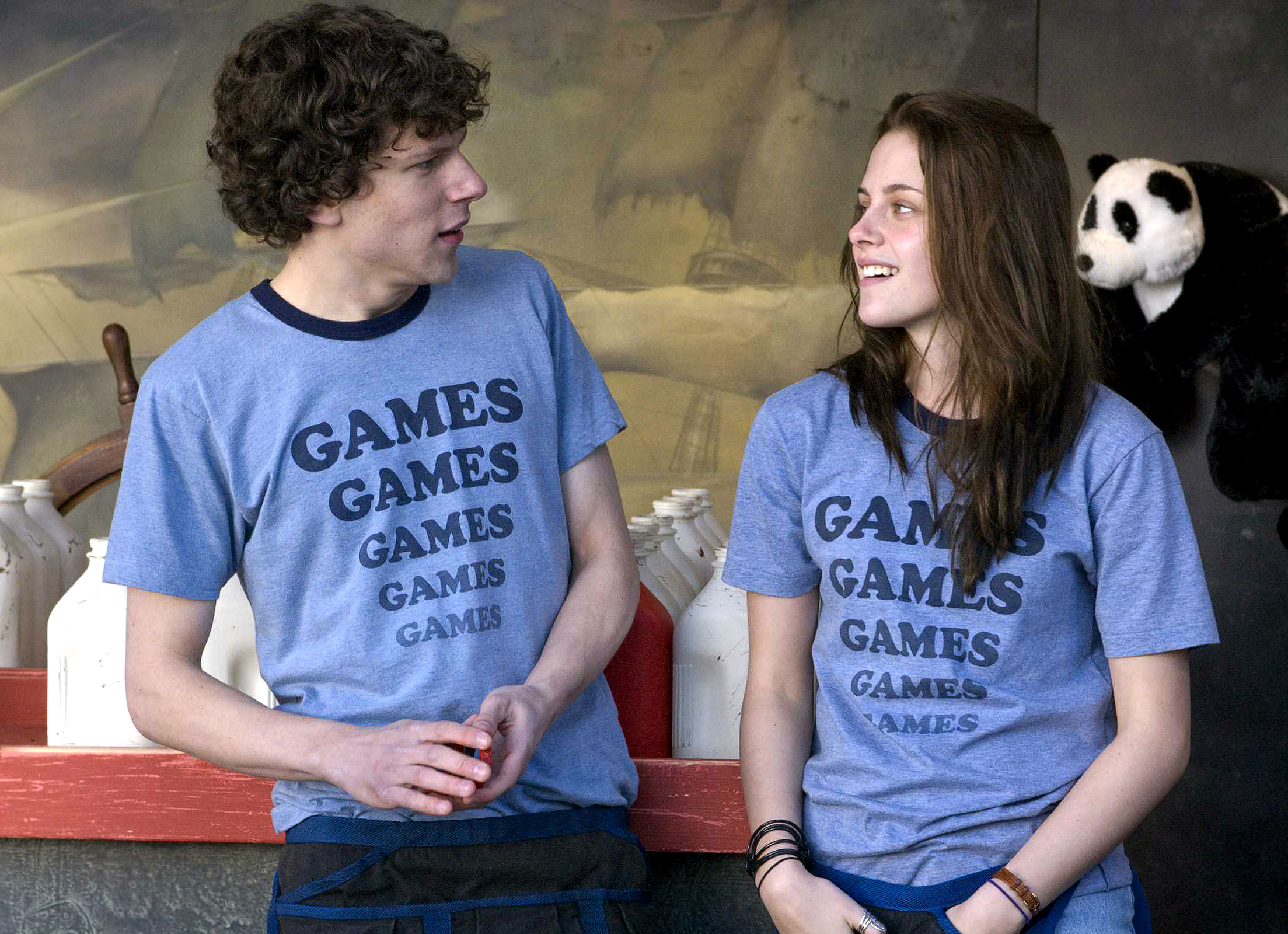Today is the first day of my last quarter at UCLA. Eleven weeks from now, this university will release me, publicly, wearing a flat black square on my head, into the real world. They will call it “graduation.” Historians, years from now, will call it “the end of an era.” I will call it “terrifying.”
I really shouldn’t be so scared, though. They say we fear the unknown, but I have a pretty good idea about what awaits me after college ““ Hollywood told me all about it.
If I’m to believe “Adventureland” (2009), I’ll get stuck working a horrifically dumb job this summer, but then I’ll end up in New York with Kristen Stewart. I happen to be one of the much-maligned minority who thinks that’s a good trade.
“Adventureland” was directed by Greg Mottola, after all, so it’s trustworthy. His first film, “Superbad” (2007), told me exactly what senior year of high school would be like (well, not for me, but for some people). And I can only assume Mottola’s newest movie, “Paul,” is a definitive account of what it’s like to meet an alien.
Forget that the protagonist of “Adventureland,” played by Jesse Eisenberg, arrives in New York with no job prospects, boasting a degree in comparative literature and no experience doing manual labor. That film is a wonderful, delusional beacon of hope for graduates.
It presumes that our lives will turn out OK because magical romances fall in our laps, not because we work hard and make good choices. It encourages us to appreciate even the lamest of dead-end jobs, for they shall bring us beautiful, angst-ridden girlfriends.
But we can’t all be Eisenberg’s character in “Adventureland.”
(Fewer, I imagine, can be his character in “The Social Network.”) Some of us may instead end up like the cast of “How I Met Your Mother,” television’s great security blanket, reassuring college students everywhere that we’ll still have friends a few years from now.
That comforting appeal, I suspect, is the reason for the show’s longevity; it’s certainly not that Ted Mosby needs six seasons to explain how he met the kids’ mother. But the exhausting endurance of the show bodes well for us too: Even if it seems like it’s taking forever, we will all someday find love, have kids, sit them down on a couch and tell them a story so long that they run away from home.
Or I could hold out hope for a life like “Chuck,” the NBC series about a nerd dragged unwillingly into spy work. Each year it becomes less reasonable to expect a letter from the Hogwarts School of Witchcraft and Wizardry (Dumbledore surely would have noticed my absence by now), but this seems like the perfect time for the CIA to reveal my destiny as a secret agent.
And if I decline the agency’s offer, “Chuck” still confirms the wisdom of “Adventureland.” I may end up working at a Buy More, but it will only lead to my adorable romance with the world’s most gorgeous spy.
Even Judd Apatow, Hollywood’s grand champion of lazy man-children, thinks there’s hope. The title of “The 40-Year-Old Virgin” (2005) is only half-accurate by the end of the movie. “Knocked Up” (2007) ends with Katherine Heigl putting a shocking amount of confidence in Seth Rogen’s parenting skills. And “Funny People” (2009) ends with the suggestion that the title might actually describe the main characters if there were to be a sequel.
The scary truth, though, is that pretty much any movie not set in high school or college could potentially show me my future. Well, not the ones about nuns either, or fantasy films or period pieces.
The point is, any time I watched a movie about plausible-seeming adults, I was actually preparing for my foray into the real world.
After all, they say art imitates life. I’ve never seen “Animal House” (1978), but I assume it’s an accurate portrayal of my time in college. Some day when I’m feeling nostalgic, I’ll sit down and watch John Belushi go to class, study and write for the school newspaper.
